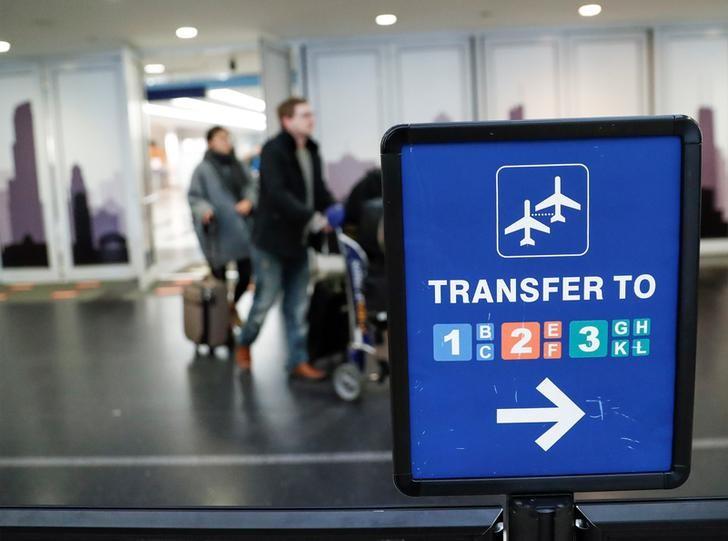Air passenger arrivals in the United States fell in the first quarter of the year, while arrivals in Canada and Mexico rose, according to data from travel analysis company ForwardKeys.
Travelers from the Middle East and Europe were possibly deterred by uncertainty over President Donald Trump’s travel ban on citizens of six Muslim-majority nations, as well as the strong dollar, it said on Wednesday.
Long-haul arrivals in the U.S. dropped by 4.3 percent in the first quarter, ForwardKeys, which analyses 16 million flight booking transactions a day from major global reservation systems, said.
On Tuesday, Emirates airline signaled that its U.S. expansion plans were on hold until demand recovers from a slowdown that the airline has blamed on Trump’s travel restrictions.
Meanwhile, Canada and Mexico both saw arrivals increase 6.1 percent in the first quarter and bookings for arrival in the second quarter are up 15.7 and 19.8 percent, driven by bookings from the Netherlands, China, Britain and Germany.
Forward bookings to the United States for travel in the second quarter of the year are 3.7 percent ahead of last year, due to the later Easter holiday period this year, the travel analysis company said.
Visitors from Asia and the Americas are returning to Europe, after a dip following a string of attacks in France, Belgium and Germany, starting with Paris in November 2015, ForwardKeys said. Compared with two years ago, arrivals in the first quarter rose 5.2 percent and forward bookings are up 11.2 percent for the second quarter.

Passengers arrive at O’Hare airport in Chicago, Illinois, U.S. February 4, 2017. REUTERS/Kamil Krzaczynski
European carriers such as Lufthansa and Air France-KLM had felt the effects of the downturn in demand from Asia and the U.S last year. Both are due to report first-quarter results over the next couple of weeks.
“This overview reveals the resilience of the travel industry globally. People are finding alternative new destinations, and they are returning to others, previously blighted by dreadful events,” ForwardKeys Chief Executive Olivier Jager said in a statement.
(Reporting by Victoria Bryan; editing by Susan Thomas for Reuters)
Source: http://www.reuters.com/
